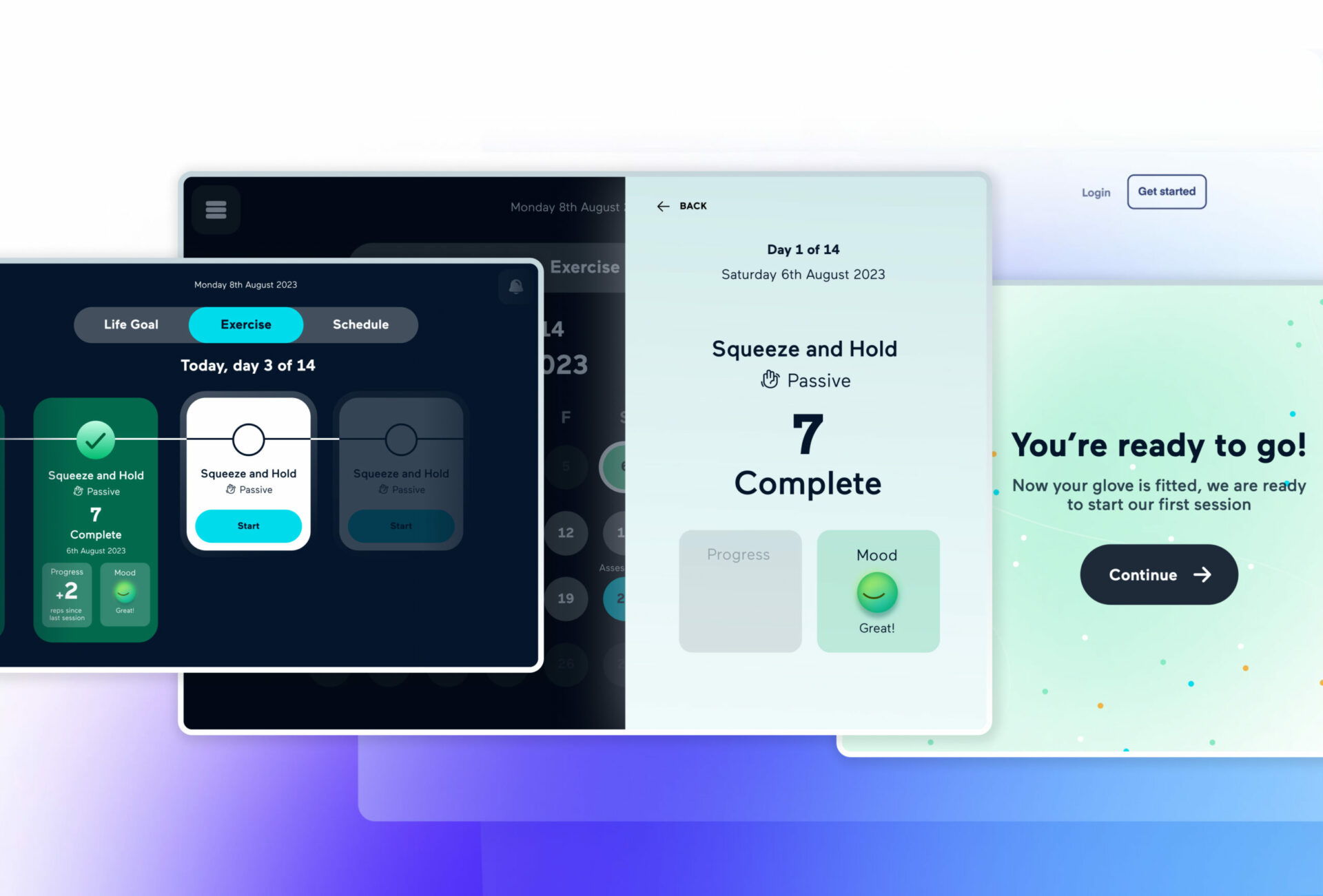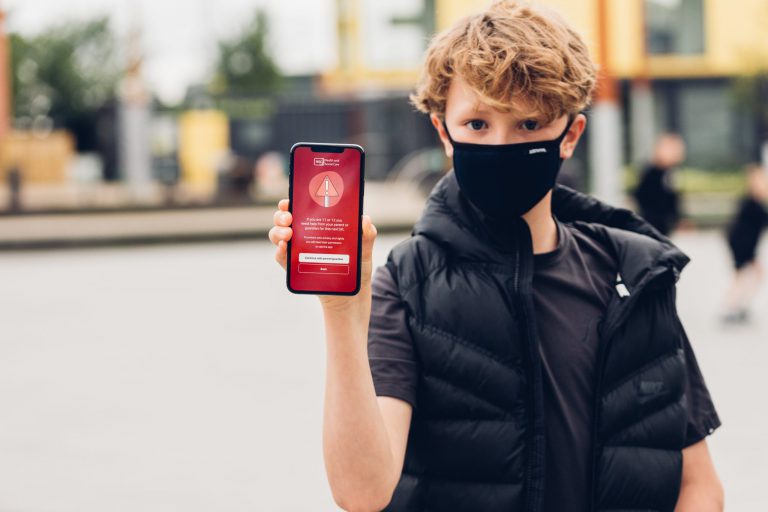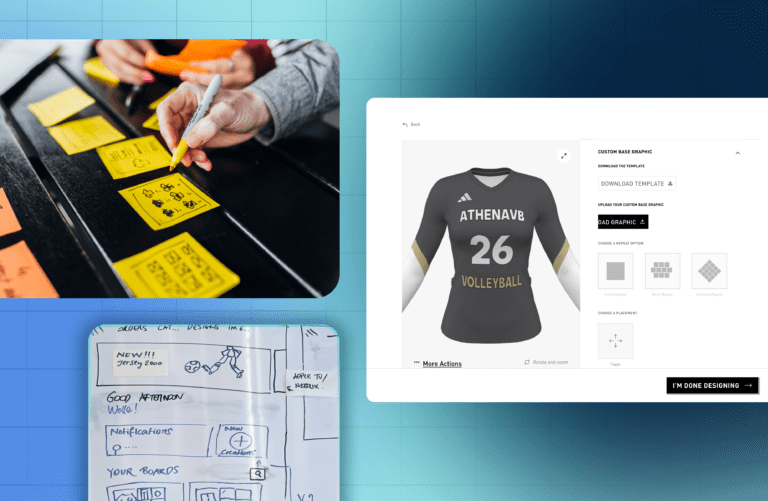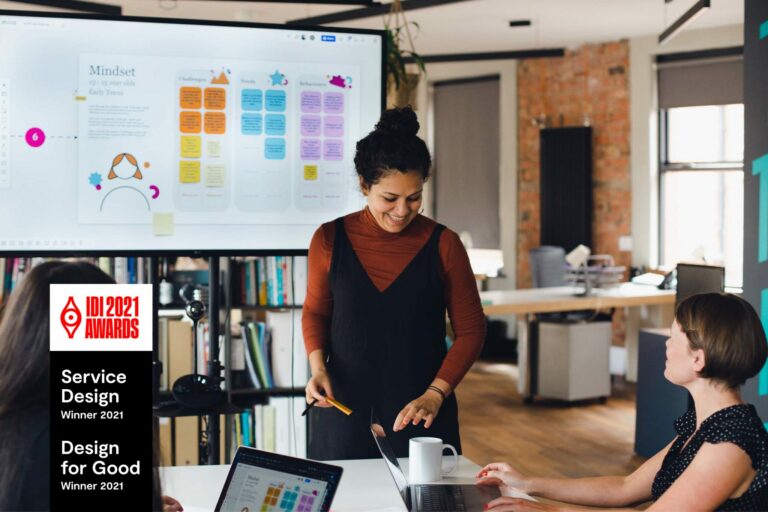Revolutionising Stroke Rehabilitation with Design and Robotics
Bioliberty partnered with Big Motive to revolutionise stroke rehabilitation by enhancing their Lifehub product. Through a design sprint, we rapidly prototyped and validated a data visualisation solution, aligning with clinician and patient needs. This collaboration empowers stroke survivors and therapists, advancing Bioliberty’s mission to transform recovery through innovation.

Bioliberty is a health tech startup specialising in the development of rehabilitative robotic technologies. Their flagship product, Lifehub, utilises advanced soft robotics to enhance the hand rehabilitation process for stroke patients. By transforming the therapy experience for both patients and clinicians, Bioliberty aims to close the gap between hand weakness and independent living post-stroke.
Each year, over 800,000 strokes occur in the US, with 88% of survivors experiencing upper limb weakness. According to a recent Occupational Therapy Workforce report, by 2030, the demand for Occupational Therapy (OT) services will exceed the supply across all 50 states.
Bioliberty seeks to address this challenge by leveraging advancements in robotics, biomechanics, and artificial intelligence to enhance clinician productivity, streamline workflows, and improve patient outcomes.

The Problem
Incorporating new technologies into the stroke rehabilitation process necessitates a thorough understanding of user needs to ensure usability and acceptance by both patients and clinicians. Ongoing research and design efforts are essential to develop a rehabilitation solution that integrates seamlessly with existing services.
In this project, our primary focus was on designing services for clinicians to enhance the experience for stroke patients. We also considered both in-patient and out-patient perspectives within Biolierty’s target market.

Our Approach
Given the complexity of the challenge, we decided that a design sprint would allow our combined team to rapidly generate ideas, validate assumptions, and test solutions with clinicians. The resulting solution focused on data visualisation, addressing one of the biggest challenges in similar interventions.
The sprint helped us identify the necessary data to keep patients engaged and motivated, while also supporting therapists and decision-makers in providing effective rehabilitation.

The Outcome
Using a design sprint to understand the needs of clinicians working in stroke rehabilitation has been a strategic and efficient approach. We uncovered insights, developed a prototype, and validated its effectiveness in a collaborative and human-centred way.
The design sprint not only accelerated the problem-solving process but also ensures that the outcomes are aligned with the needs of patients and healthcare providers.
This work will support the Bioliberty team in empowering clinicians and stroke patients with valuable rehabilitation data, offering a glimpse into the future of stroke rehabilitation healthcare.
Working with Big Motive has been a game-changer for Bioliberty. Their design sprint process was efficient and effective, helping us quickly develop and test a prototype that meets the needs of both clinicians and patients.


